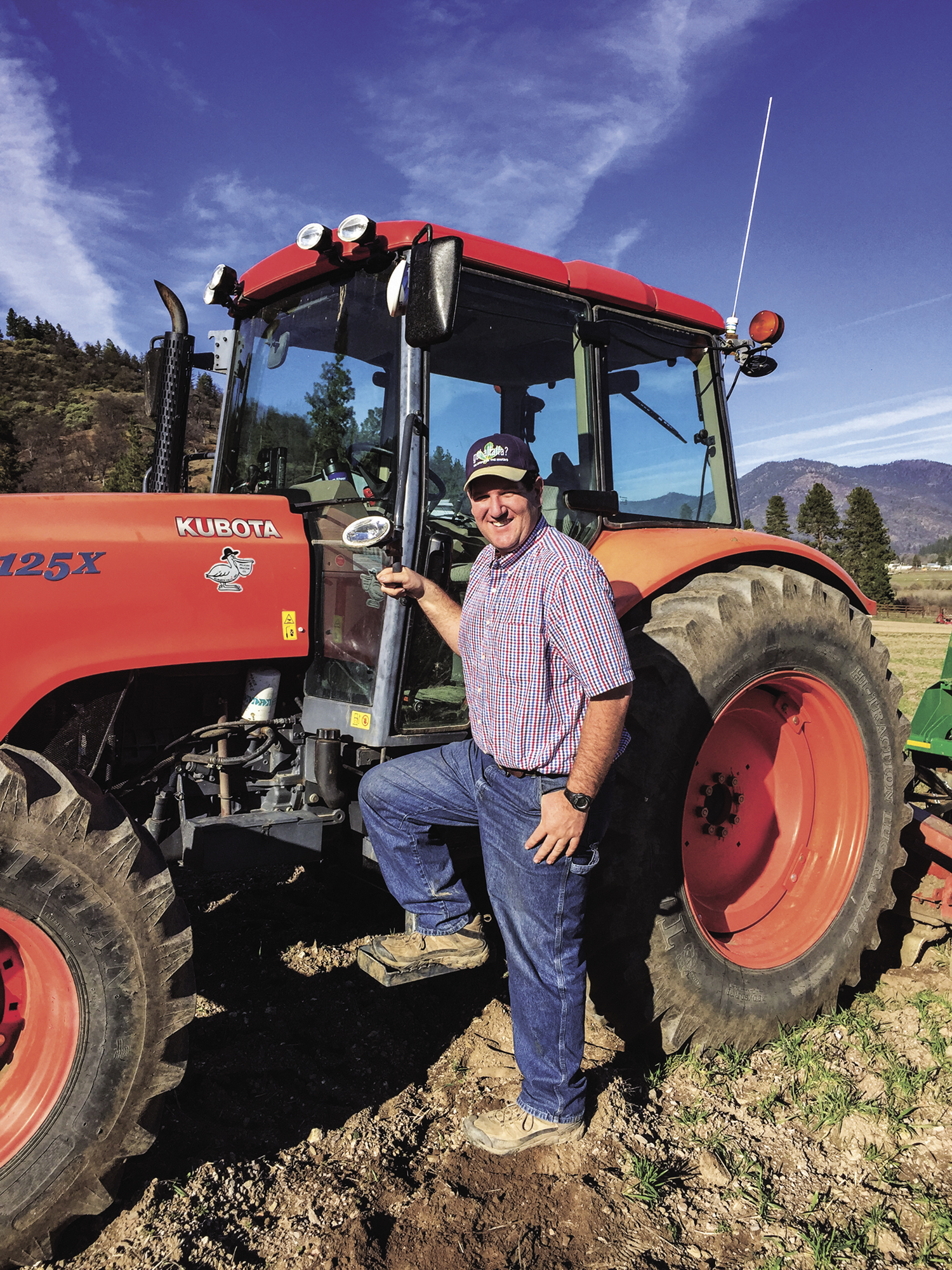From the Fields: Brandon Fawaz, Siskiyou County hay farmer

Brandon Fawaz
Photo/Courtesy of Brandon Fawaz

By Brandon Fawaz
Siskiyou County hay farmer
We are primarily alfalfa and orchard grass farmers with grain on rotation. I also operate an ag services and agronomy business providing seed, pesticides, fertilizer and supplies to the local hay farmers of our area.
In the Scott Valley, we are very wet despite being in a declared state of emergency for drought. We have been underwater and flooded, or we have been wet and soggy, and we have little springs of water developing out of hillsides draining into our fields that we don’t normally see. We had around a foot of snow a little over a week ago, which is uncharacteristic but not unheard of for this time of year. Normally, we get about 20 inches of rain a year, and right now we’re at about 21 inches.
That’s going to impact spring work. On a typical year, we might have 30%, 40% of our spring grain planted by now, with the next 25% of it to be planted in the next few days or week. So far, we haven’t been able to do anything. There hasn’t been a tractor in the field in our area yet because it’s just been so wet. We’re sitting around doing shop work, maintenance, agronomy work, office work and things inside.
Last year we had some of the best yields of my career. I have over 25 to 30 hay seasons under my belt, and we started earlier than I’ve ever started. We started cutting hay around May 20, and that’s at least a week earlier than normal.
The hay market was down compared to other years. With the yield being really good, it took some of the sting out of the bad prices. We’re heavily reliant on export trade. China did not purchase a lot of hay from the 2024 crop. What they decide to purchase of the 2025 crop with new trade negotiations remains to be seen. We, unfortunately, have a lot of eggs in that basket.




